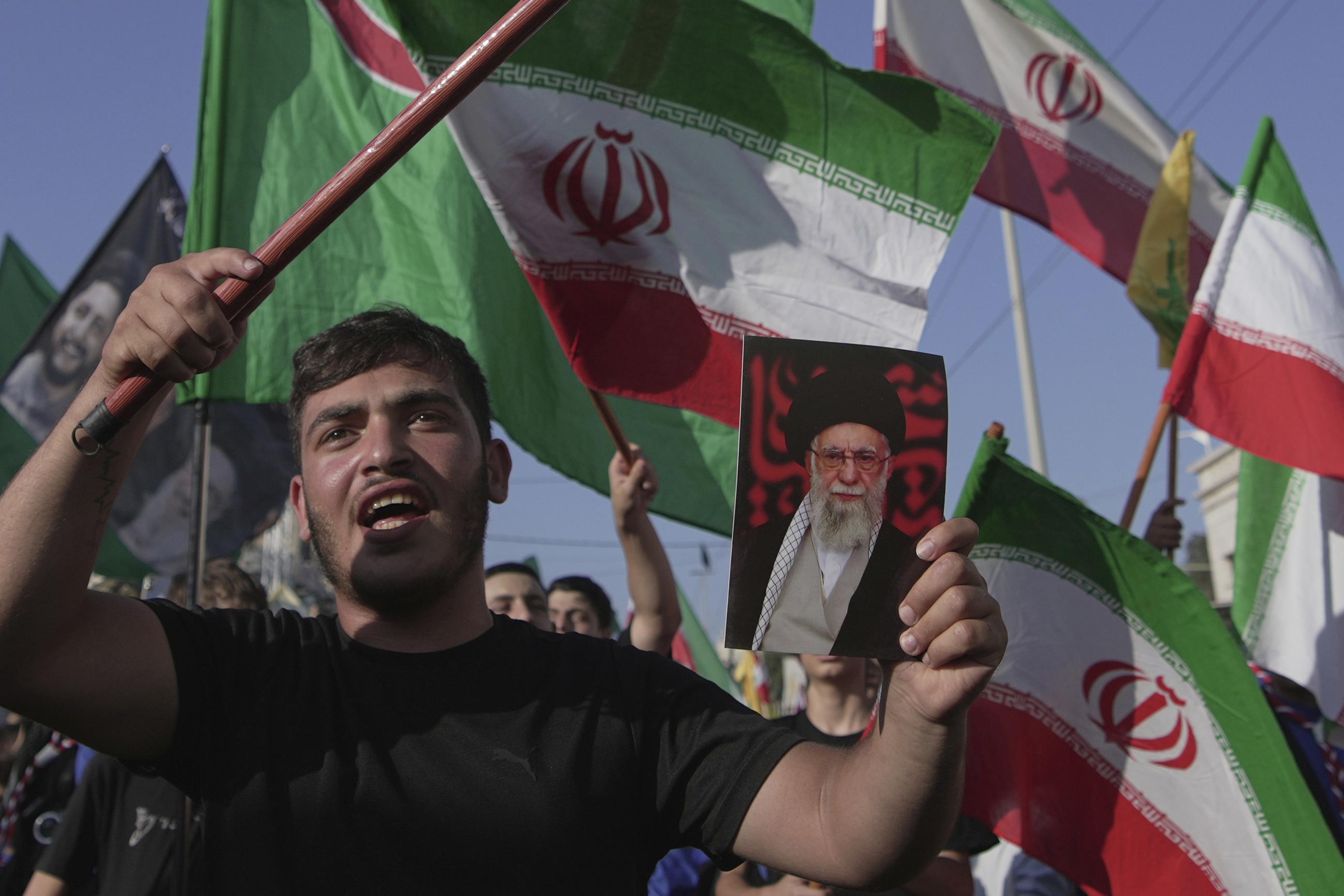A Hezbollah supporter chants slogans and holds a portrait of Iran Supreme Leader Ayatollah Ali Khamenei during a gathering outside the Iranian Embassy in Beirut on June 25 to honor the Islamic Republic of Iran for what organizers described as "breaking American and Israeli aggression." (AP Photo/Hassan Ammar)


